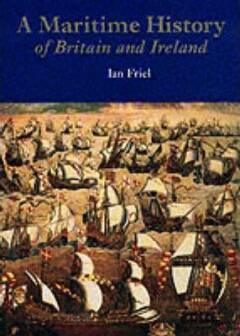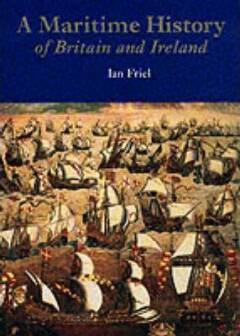
- Retrait gratuit dans votre magasin Club
- 7.000.000 titres dans notre catalogue
- Payer en toute sécurité
- Toujours un magasin près de chez vous
- Retrait gratuit dans votre magasin Club
- 7.000.0000 titres dans notre catalogue
- Payer en toute sécurité
- Toujours un magasin près de chez vous
Description
An authoritative account of the maritime history of the British Isles over the last 1500 years. Ian Friel defines 'maritime history' broadly to encompass naval developments; sea trade; exploration and colonization; fishing; social history; the technology of shipbuilding and a host of other themes related to the ways in which maritime activity has affected the history of Britain. Conversely; he examines the ways in which British seafaring enterprise has affected the world; for good and ill. Beginning with the maritime world of late Roman Britain; Ian Friel reviews seafaring in the Celtic world; Viking raids and settlement; and the Norman invasion and conquest. The second chapter studies England as part of the 'cross-Channel kingdom'; the wars with France 1204-1453 and the rise and fall of English naval forces. Chapter three deals with the early British voyages of exploration; the Tudor and Stuart navies; and the first permanent naval dockyards. Following on comes the rise of empire and a growing public consciousness of the sea in national affairs: the defeat of piracy; the establishment of English colonies abroad and the growth of economic structures that supported empire; such as the slave trade. Chapter five describes the Pax Britannica; with England becoming the greatest naval and mercantile power in the world; until she fell into war in 1914. This period saw the development of the steamship and motor vessel and the establishment of major commercial docks; also the growth of trade unionism; class-consciousness and labor disputes in the maritime industries. The final chapter describes the rapidly changing technology of naval warfare in the two World Wars; and the decline of Britain as a naval power and as a shipbuilding nation. Offshore oil and gas industries signaled major changes in maritime trade and industry; traditional ports declined; and the European Union had profound effects on British maritime industries.
Spécifications
Parties prenantes
- Auteur(s) :
- Editeur:
Contenu
- Nombre de pages :
- 286
- Langue:
- Anglais
Caractéristiques
- EAN:
- 9780714127187
- Date de parution :
- 01-04-03
- Format:
- Livre relié
- Format numérique:
- Genaaid
- Dimensions :
- 174 mm x 249 mm
- Poids :
- 1047 g

Les avis
Nous publions uniquement les avis qui respectent les conditions requises. Consultez nos conditions pour les avis.






